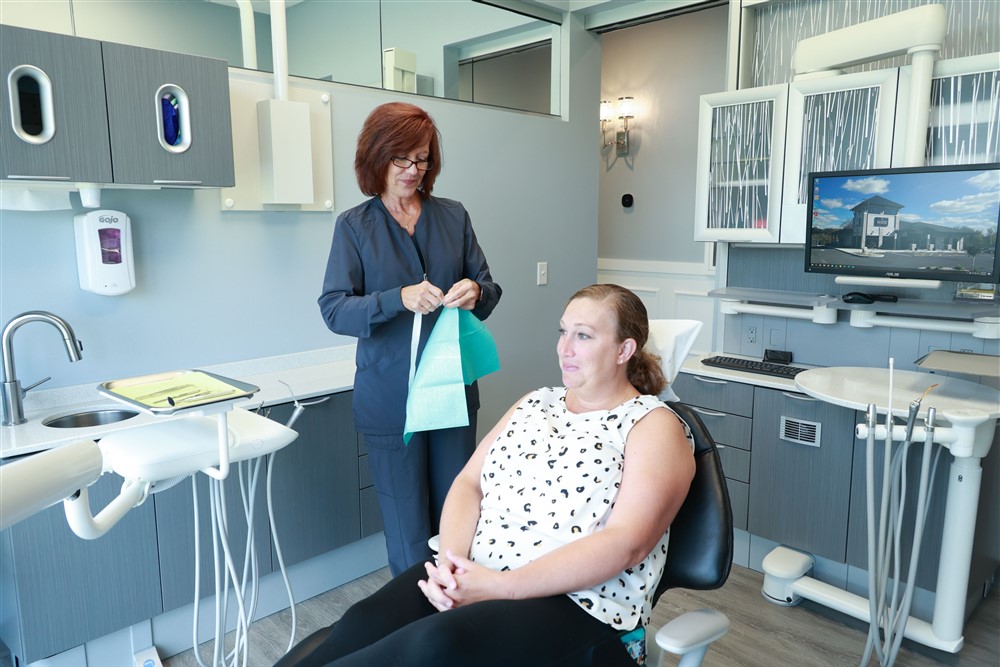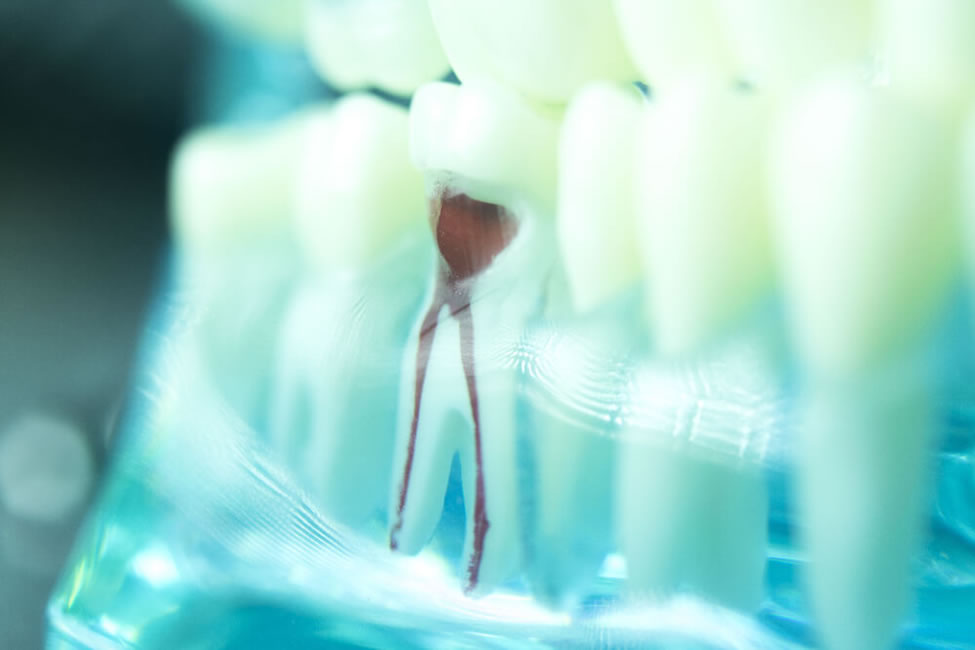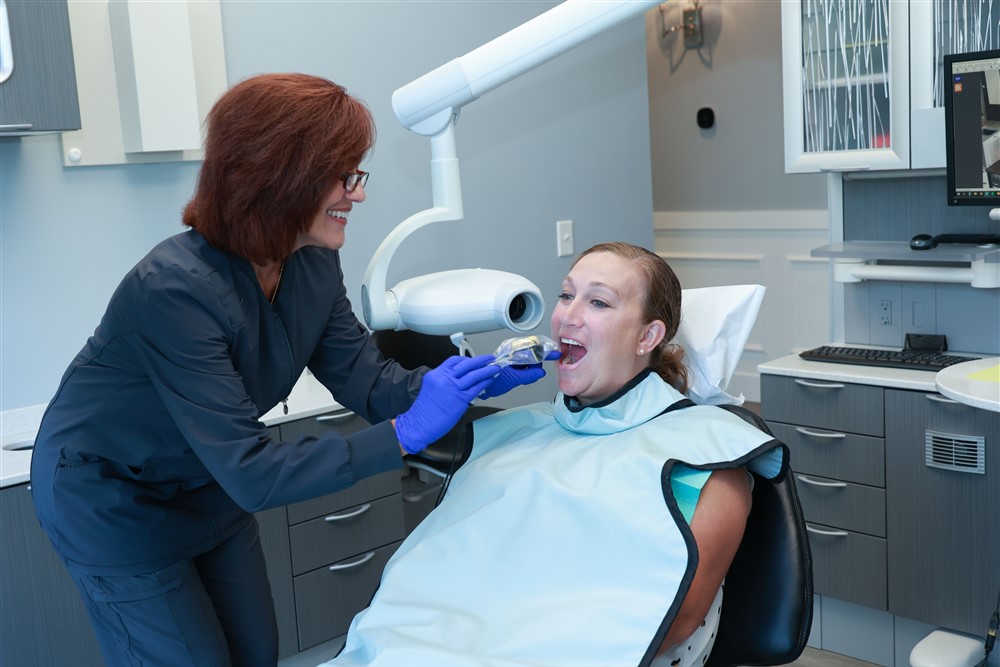Save Infected Teeth
If you have a toothache or a very sensitive, tender tooth, you may have an infected tooth. This is a serious problem, and can result in the loss of your tooth without treatment, as well as a lot of pain and discomfort.
A root canal from Dr. Williamson is the best way to preserve your tooth, prevent further complications, and restore your smile, your bite, and your day-to-day routine. Contact us now to schedule an appointment at our Columbia IL dental office and get the help you need from Williamson Dental.
Signs You May Need Root Canal Therapy
Tooth infections usually happen when a tooth is damaged by an oral injury or extensive decay, and the most common symptom of an infection is a toothache. If your tooth hurts and is causing you significant discomfort for more than 1-2 days, it’s likely that you have an infection and need root canal therapy.
An infected tooth may also cause discoloration of the tooth itself, or it may discolor the nearby gum tissue and cause it to swell due to bacteria buildup. Even if you do not have a toothache, the tooth may also feel really tender and sensitive when you put pressure on it while you bite and chew, or when you consume hot or cold foods/drinks.
In severe cases, you may even notice swelling in your face and cheek, or you may develop a fever. These are very serious symptoms and indicate the spread of the infection, so you will need to see a dentist as soon as possible for help.
Dental Treatments We Offer

The Root Canal Process
Understanding The Basics
In a root canal treatment, Dr. Williamson eliminates the infection, restores the inside of the tooth, and then covers it up to protect it from further damage. To begin the process, he will clean the tooth and numb the area to prepare for the procedure.
Once your mouth is numb, he will begin by trimming away decayed and damaged enamel, and then he will open up a very small hole in the top of the tooth. This provides Dr. Williamson with access to the infected pulp inside the tooth.
Next, he will use special tools to gently clean out the pulp and other infected material from inside the tooth. Once the pulp has been extracted, he will flush the tooth with disinfectant to remove any remaining bacteria, and leave behind a clean environment.
As the next step, he will fill up the tooth with a rubbery material that strengthens the tooth and replaces the missing pulp. Once the tooth is filled up, he will cover it with a temporary crown or a filling. You may need to come back to our office for a permanent crown. This completes the procedure.
What Is The Healing Process After A Root Canal?
There is no special healing process or long recovery time after a root canal. You can get back to your daily routine right away, and even go back to work after your treatment. The area around the tooth may be a little bit tender and painful for a day or two, but this will go away quickly.
If you continue to experience a lot of pain for more than 2-3 days, give us a call for a follow-up. This may be a sign that the infection was not completely eliminated, and you may need to come back to our office for root canal retreatment.


Why Get A Root Canal?
Benefits Of Root Canals
A root canal is a painless procedure that can save your tooth from needing to be extracted. This saves you time and money in the long run because extractions can be more expensive and more time-consuming when you factor in follow-ups for tooth replacement.
No tooth substitute is better than your natural tooth so by restoring the health of your tooth, you are less likely to suffer from other oral health issues. Root canals are incredibly effective, with a 95% success rate.
Most people who get a root canal treatment have a tooth that can last for the rest of their life. We can also place a dental crown over your tooth which will protect it from damage and re-infection. These crowns look incredibly natural and restore the function and structure of your tooth.
By saving your tooth, you avoid all of the consequences that come along with tooth loss, such as irreversible bone loss, changes in your facial structure and bite, as well as shifting teeth.
Does A Root Canal Hurt?
Debunking Myths
No, a root canal is not painful at all! This is because our dental teams use a local anesthetic to numb your mouth during the procedure. You won’t feel any pain but may feel some pressure or sensations of tools in your mouth.
The anesthetic will take several hours to wear off. Once it does, you may feel some mild residual tenderness. This is due to inflamed or swollen tissue from the root canal. You should not be feeling any severe pain and if you do, you should contact us right away.
Take some anti-inflammatory pain medication to relieve any discomfort. You may also experience some tooth sensitivity for the first few days, especially when consuming hot and cold foods or drinks. Tenderness and discomfort should subside within a few days.


What Happens If I Don’t Get A Root Canal?
Risks Of Delaying Treatment
If you don’t get a root canal, the outcome is not optimistic. When a root canal is needed, this is because the dental pulp inside of the tooth is infected or severely damaged. If you don’t treat it, the infection will spread to the other teeth, creating the same problem.
What’s worse, it can spread to the gums, jawbone, and even through your bloodstream. This could mean losing part of your jaw or causing a serious health issue like sepsis, which can be fatal.
While you could choose to have your tooth extracted, this is only recommended as a last resort when saving the tooth is not possible. When you extract a tooth, you will have to have it replaced, which costs money and time that will often exceed that of a root canal procedure.
You will also be at an increased risk of future tooth loss, you will suffer from bone deterioration in the jaw which can not grow back, and will lead to changes in your facial structure, including premature facial sagging.


